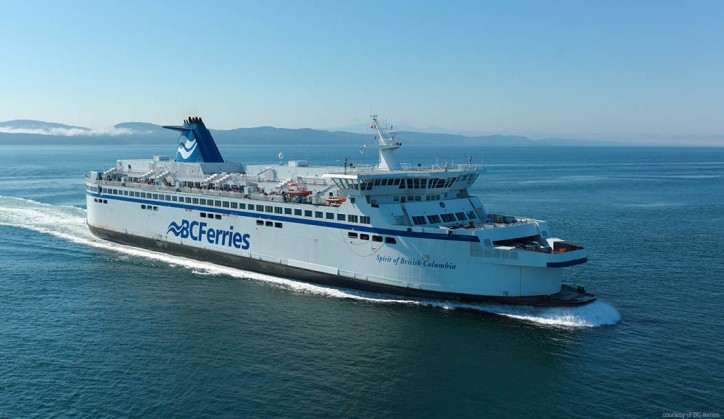LNG conversion of the Spirit of British Columbia represents a significant environmental milestone for BC Ferries’ fleet
ABS announced yesterday that the ABS-classed Spirit of British Columbia, one of two ferries that will use LNG as fuel, has finished conversion and is back in operation for BC Ferries of Canada.

“The conversion of these vessels to operate on LNG is an important milestone for BC Ferries and the region, supporting more efficient and environmentally-friendly transportation,” said ABS Vice President for Global Gas Solutions Patrick Janssens. “With the increased pressure for environmental compliance, LNG as fuel is a practical option for many marine owners and operators.”
The Spirit of British Columbia was the first to undergo conversion while its sister vessel, the Spirit of Vancouver Island, is expected to complete conversion during the spring of 2019. These vessels are the largest ships in the BC Ferries fleet with a capacity to carry 2,100 passengers and crew and 358 automobile equivalent. The conversion to LNG as fuel was completed at the Remontowa Ship Repair Yard S.A. in Gdansk, Poland.
“We are excited to welcome the Spirit of British Columbia back into our fleet and the environmental benefits and efficiency advantages that come with its conversion,” said BC Ferries Vice President of Strategy and Community Engagement, Mark Wilson. “We worked closely with ABS who helped us navigate the technical compliance challenges of converting existing vessels to run on LNG and played a key role in bringing this project to fruition.”
Recognizing the changing landscape and increased industry focus on gas, ABS launched its Global Gas Solutions team in 2013 to support industry in developing gas-related projects. The ABS Global Gas Solutions team provides industry leadership, offering guidance in liquefied natural gas (LNG) floating structures and systems, gas fuel systems and equipment, gas carriers, and regulatory and statutory requirements. ABS has extensive experience with the full scope of gas-related assets and has been the classification society of choice for some of the most advanced gas carriers in service.
Source: ABS